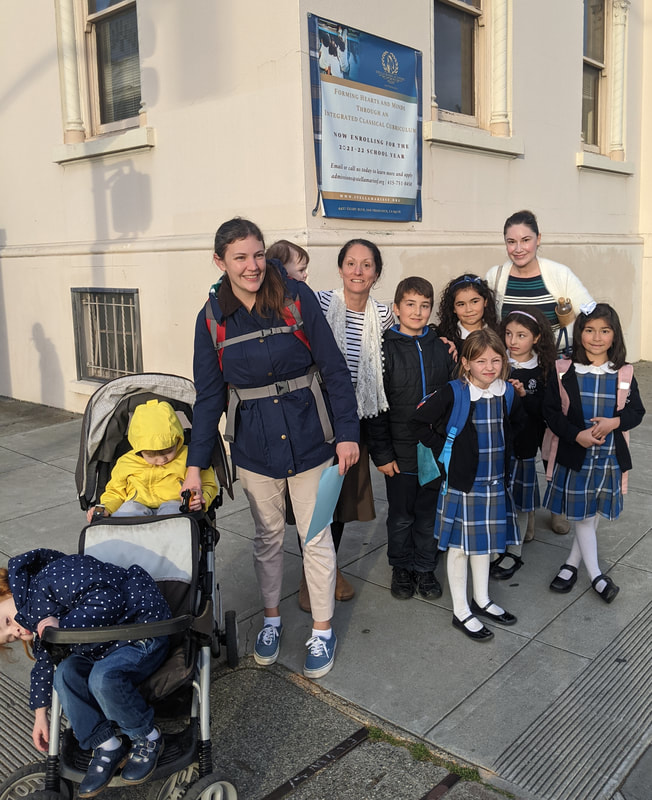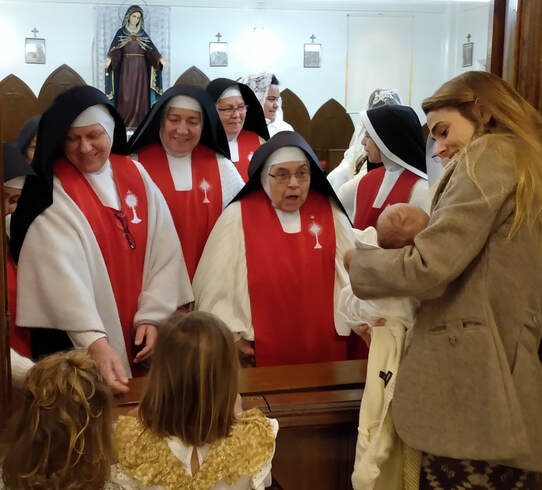That’s the bad news, but the good news is that some folks are committed to staying here. Two from our Young Adults Group married each other last year and moved into an apartment a block from the parish (their first baby is due in May). They love San Francisco, for all its current dysfunction, and have started a marriage and family apostolate. Another couple who also work in the software industry sold their suburban home, bought a large house a few blocks from the parish, and are raising their growing family here, in the heart of the city. My very Catholic doctor friend regularly argues with members of his own parish to stay here. He is committed to keeping his small offices (a “boutique doctor,” he limits his practice to about 400 patients) open to those who seek not just an online drug prescription but a physician who takes the time to understand and treat the whole person. (It’s wonderful: we have his cell number and can make an appointment within 24 hours. We talk as much about philosophy and theology as about cholesterol and back problems during appointments!)
My doctor argues for a “theology of place:” stability in a local community is a good and holy thing, worth certain sacrifices. Stay with me the Lord Jesus told his disciples. “Come and see where I live,” he invited Peter and Andrew, and they stayed with him the whole day. “Remain here,” he told Peter, James, and John, “while I go over yonder and pray.” Christianity is a religion of Presence, of staying with God in silence and staying with the community in fellowship. As many seek to escape California’s excessive taxes, its bloated administrative state, and the consequent social disintegration, my doctor argues for staying put. God Almighty came to one place on earth, and He stayed there for 33 years.
Last month my Archbishop asked me to stay in my parish for another 6-year term, until 2030. I felt affirmed but, at the same time, tempted to feel confined. Despite my stated preference to stay for another term, I was secretly hoping for an escape hatch after ten years in one place. As a rule, however, I think we diocesan priests should stay with our parishes for longer than the usual 3-6 years. It takes a pastor at least five years to gain a deep knowledge of his flock and to win the people’s trust. It takes many years beyond that to build up a stable and supportive community. People call priests “father,” and rightly so, but a father needs to spend many years with his children to understand them. People frequently tell me that Star of the Sea has that “family feel,” which is what attracts many to our parish. We are only one of two parishes in San Francisco that have grown during the pandemic, but building this community has taken many years of living and worshipping and struggling together. The many priests who are frequently moved between parishes could say, with Bilbo Baggins, “I don’t know half of you half as well as I should like, and I like less than half of you half as well as you deserve.” The patron saint and model for parish priests, St. John Vianney, stayed with his parish of St. John the Baptist in Ars, France, until he died at age 73. He was an associate pastor for two years, and then spent the rest of his life in one parish. Personnel Boards move most priests every three or four years, and I think this is very bad for the Church.
Bilbo Baggins (with whom I have renewed a friendship over the last few weeks) spent most of his life in The Shire, at Bag End. He went on one Adventure, and after 111 years, he went on a final journey that would take him to the Grey Havens. I think it’s best not to panic when cultures decline, but to stay in one place as much as one can. Like a seasoned marriage that has known wealth and poverty, health and sickness, good times and bad times, we gain a deep peace and joy by staying put, getting to know and love both the people and the very rocks and trees of the place in which God has placed us.




 RSS Feed
RSS Feed